MILLERSVILLE, Pa.—The kale Caesar salad is a hit at The Pressroom in nearby Lancaster. Daniel Castellanos, a prep cook at the restaurant, says the secret’s in the dressing. He describes it, speaking deliberately but not slowly, clipping off each word briskly, never running two words together.
“All you need is lemon juice, some palm oil that you’ll find at any convenience store or supermarket,” he said.
“You also need eggs, Dijon mustard, Worcestershire sauce, and some anchovies. … With the Caesar dressing I make from scratch, it has a lot of flavors, and it has a lot of textures, something you’ll never see in different restaurants.”
Concentration on detail helped Castellanos win the 2019 “Restaurant Employee of the Year” title from the Pennsylvania Restaurant & Lodging Association. It’s part of the reason that an employee of his modest rank is a star at The Pressroom.
He’s also a star at Millersville University, a few miles south of Lancaster. That’s where he graduated in 2016, where he gave a commencement address, and where he was the first student in a new program, now called Integrated Studies. Its aim is to bring students with intellectual disabilities to school and weave them into campus as fully as any student.
It is decidedly not “special ed goes to college,” as Integrated Studies Director Jan Bechtel puts it. In fact, Integrated Studies is the antithesis of old-fashioned K-12 special ed, with its separate classrooms, special classes, and sheltered-workshop simulations. The goal is uncompromising integration into college life.
The 25 Integrated Studies students live with roommates who aren’t part of the program. No classes are designed exclusively for them. They join clubs on campus, but they do not constitute their own club. No social events are designed solely for them. They need to work longer and harder than typical students to learn and understand. But college life, with all its pleasures, challenges, and opportunities, is now within their reach.
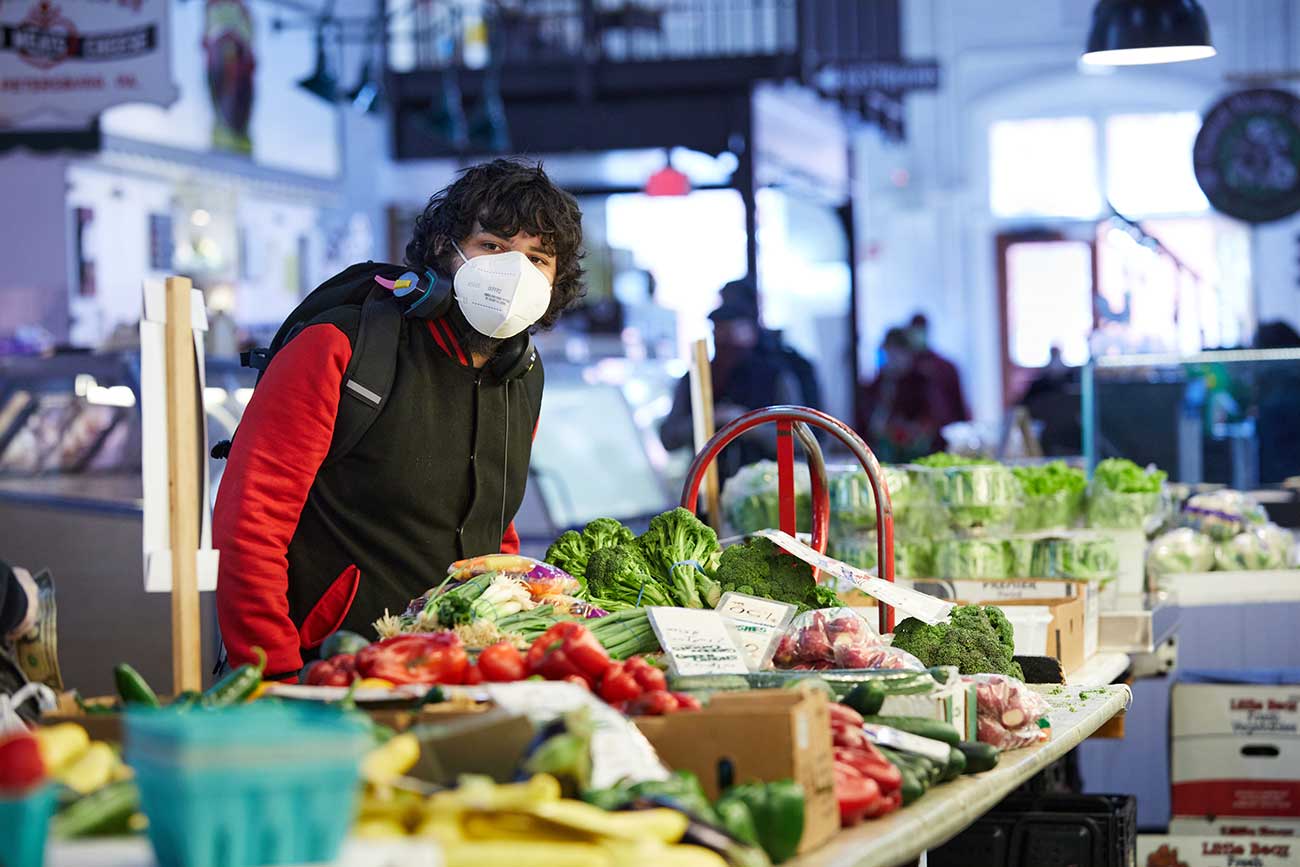
Millersville’s program isn’t unique in seeing new possibilities for students with intellectual disabilities. This public university in southeastern Pennsylvania is among more than 290 colleges and universities in the nation that now offer such programs, according to Think College, an organization based at the University of Massachusetts in Boston. Most programs are small. Only about 5,000 students are enrolled nationwide, and no program has more than 100 students. The average program is smaller than Millersville’s.
These programs promote one accomplishment above all others: helping students land jobs—real jobs in the general marketplace for labor, not doing piecework in a sheltered workshop. Millersville’s Integrated Studies reports that 100 percent of its graduates have found work.
Director Jan Bechtel
This program wouldn’t run without campus champions, and no one champions the cause of inclusion for students with disabilities more than Bechtel. She directs the program, but she doesn’t confine her attention to the young people in Integrated Studies. As she rolls around campus in a motorized wheelchair, she can’t often travel 200 yards without being interrupted. Passersby stop to confer about students or to tell Bechtel how her recent advice about them has panned out. Some people stop just to give her a hug.
Bechtel seems to know everyone. Wheeling through a crosswalk, she calls out a greeting to a uniformed campus police officer who manages traffic at one of the school’s busiest intersections. “That’s Officer Mike,” she explains as she moves toward a classroom building. “He goes above and beyond the call.” Later Officer Mike (actual name: Phoulideth Chanthongthip) shrugs off her praise when he hears about it. “I don’t do that much,” he says.
Bechtel disagrees. “He’s always watching out for students. He’s a student himself, and sometimes he’ll approach them in plainclothes, and he’ll ask them how they’re doing, if everything’s OK.”
On her way through a residence hall, she’s surprised not to find Vicky, a housekeeping staffer, at work. “She’s been here since I was an undergrad,” which is to say, 1983. “She’s all-around good people.” Like Officer Mike, Vicky knows Bechtel, and she also looks out for students. Sometimes Vicky calls Bechtel, just to alert her that one of her students seemed a little down that day and might be struggling.
“Everybody has my cell number,” Bechtel said. “Sometimes they call me at home—late at night if need be.”
Thomas Neuville, faculty advisor to Integrated Studies and the man who did the most to establish the program, recalls how Bechtel’s grassroots network paid off for a particular student. The student took to dawdling on his w ay to math class—a class he was happy to avoid—by talking with a campus groundskeeper. The worker asked Bechtel about it, and she successfully steered the overly sociable student back to his math class.
This network of watchful staff that Bechtel cultivates doesn’t exist just because its members are sociable. Those people play an important part in helping Integrated Studies students move from their cloistered high school settings into much more independent lives.
“There are students who come to Millersville (with) such an impoverishment of experiences—never having relationships, never having friendships,” she said. Showing them the range of choices they can make for themselves takes a few years—and a lot of help.
Deltilyn Bonal
Twenty-six-year-old Deltilyn Bonal has difficulty articulating some sounds, and her speech can be difficult for a new acquaintance to understand. But her excitement has a way of overpowering her hesitation.

The best icebreaker is to ask about her photographs. Many of her favorites are as close as her phone. She’s quick to stage a show. She swipes through a gallery of studio portraits of three of her friends who volunteered to be her models. They were all savvy to striking just thel ooks they wanted, made up and dressed up, longtime veterans of the selfie era. Bonal slides on, showing photos of a casually dressed redhead with long hair in tight waves. This friend shows more anxiety than she has freckles in her face. “She didn’t know how to pose,” Bonal said, smiling.
She moves on through images from the first basketball game she shot; she’s particularly fond of an action portrait of Millersville men’s basketball head coach Casey Stitzel, a big man with a shaved head, who watches the action with penetrating concentration. And there’s more: Multiple-exposure shots bleeding one scene into another. Beach sunsets filtered through software that paints them in colors of exaggerated intensity. A friend silhouetted against one of those sunsets as she leaps into the air. Sometimes she signs her favorite shots. When she does, it’s not as Dee, the way she’s often known around campus, but as Deltilyn.
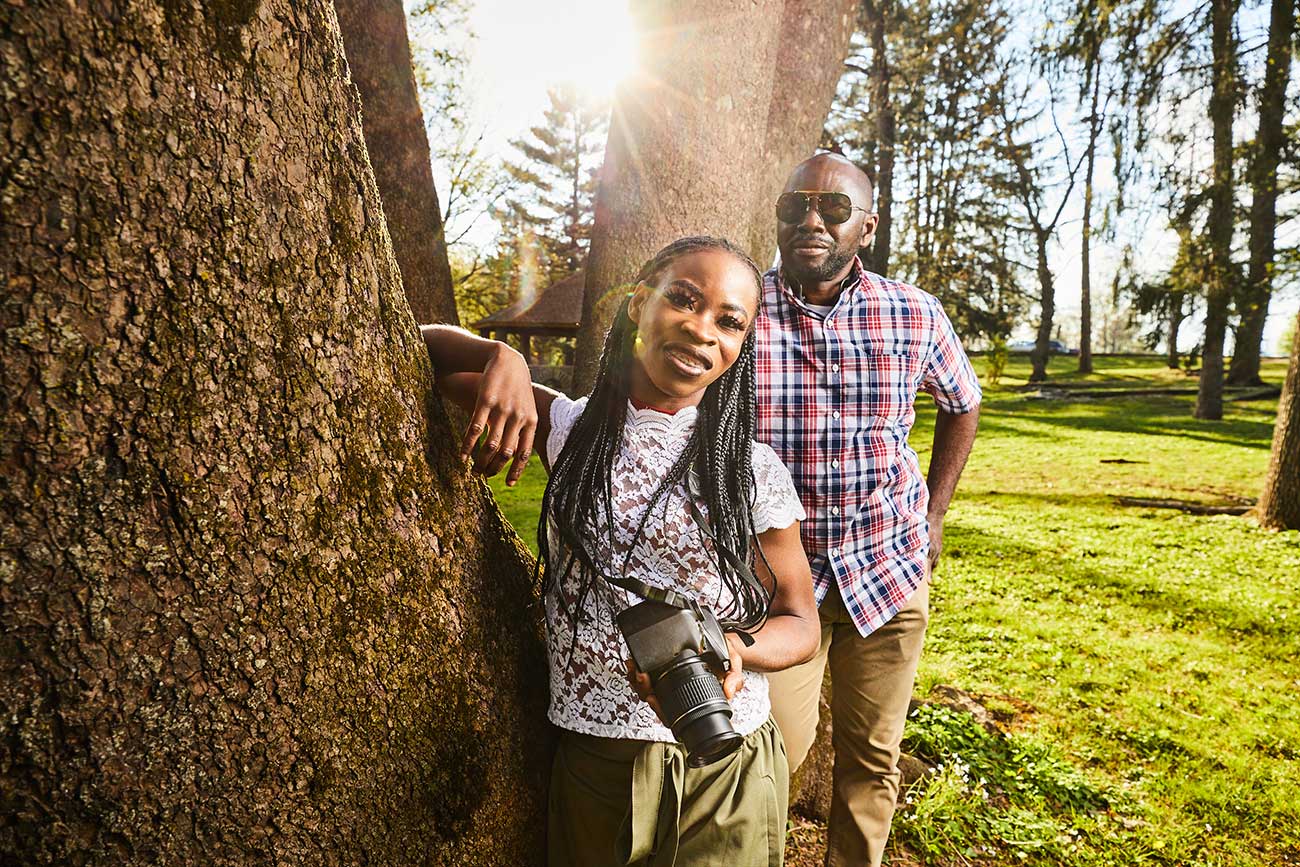
No one has come as far as Bonal to join Integrated Studies. She was born in Liberia, near the end of one civil war and just before the start of a second. Several hundred thousand people died in the civil wars that began in 1989 and ended in 2003. Her family didn’t wait around to see whether lasting peace would come. Instead, her mother emigrated to the United States.
“She came here to get a better opportunity for life and to get away from war,” Bonal said of her mother. Her father followed, while Bonal, her older sister and an aunt ran for cover in Ghana, a few hundred miles away. She didn’t make it to the United States until 2003, at age 9.
Her father bought Bonal her first camera when she was in middle school. “When I saw how the picture looked, I fell in love with photography,” she recalled. When she needed a better camera for photography class, he bought her a used Nikon D400.
For Bonal, as for all students in Integrated Studies, getting ready for real work—paid employment in a competitive market—is a key objective. Bonal, who would like to return for a fifth year at Millersville next fall, definitely wants to work, but isn’t sure what kind of job she’d like. In the spring, she had an internship in the student affairs office on campus. There she designed flyers to advertise campus events and ran errands for office staff.
One February morning, she set out from the office to the campus police department, about a half-mile away. It was a 10or 12-minute walk into a brisk headwind. She grumbled about the hike—“Why does it have to be so far away?”—as she bent her head into the wind and picked up her pace. She collected a stack of reports on parking tickets to take back to the student affairs office. Walking back with a tailwind came easier, and she pointed out a building she likes a lot—the former library, now the university president’s office. She talks about the campus as familiarly, as fondly, as people talk about their homes and families.
“I’d love to get a job here!” she exclaims.
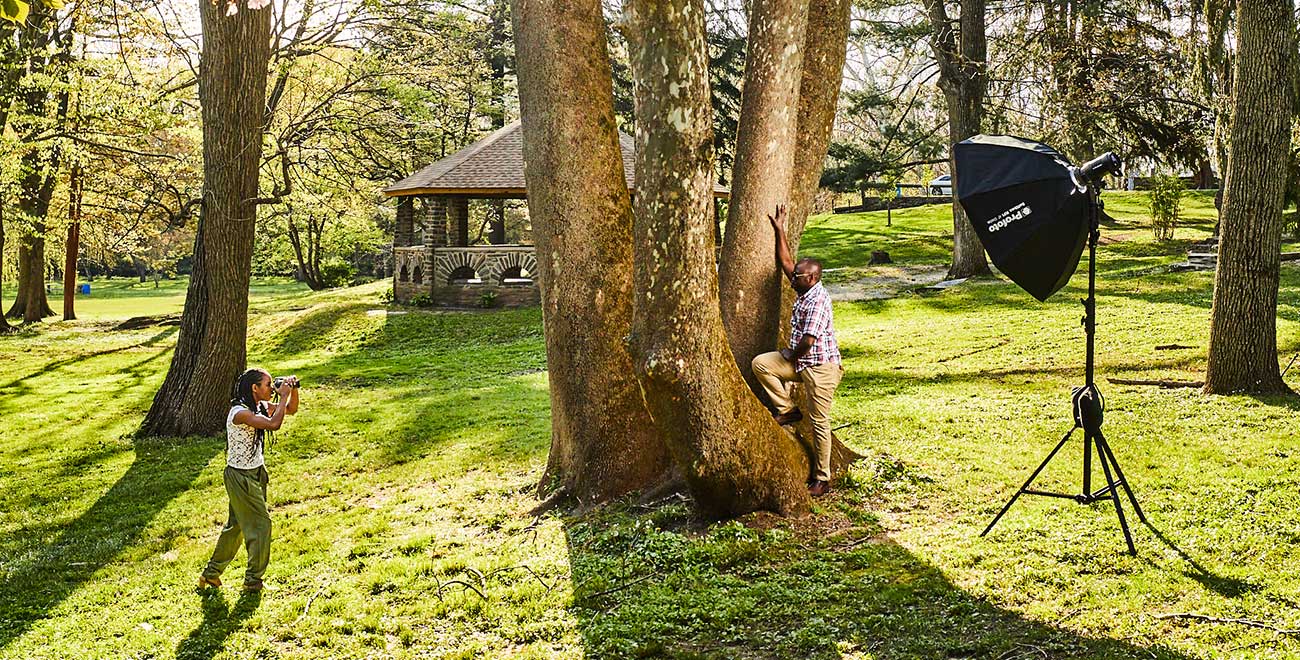
Prices and revenue sources
For Pennsylvania residents, tuition and fees for
12 credit hours each semester totaled $10,600 for the 2019-20 academic year at Millersville. Room and board was $11,988. Integrated Studies students paid an additional $10,730 in program costs. Yes, the cost of being in the program was higher than tuition for a 24-credit class load, but that fee provides an exceptional level of personal help for each student.
Neuville explained that the program fee covers 13 hours a week of individual help from academic coaches who provide intensive tutoring and mentoring.
Admittedly, $33,000 a year is a lot to attend a public university, but Integrated Studies has many sources of revenue to help fund the program and to help students pay for school. Some include:
- The same federal grants and financial aid available to any college student.
- State funding for adults with intellectual disabilities.
- Support from area school districts to aid students’ transitions to more independent adulthood.
- Vocational Rehabilitation money for job training.
- Medicaid waiver funds, which sometimes cover the cost of intensive tutoring.
Eric Raymond
Few people work with the unbreakable focus that Eric Raymond brings to his internship at the campus career center. There’s no idle chatter, no social-media browsing, no meandering. The career center, formally called Experiential Learning and Career Management, runs seminars and workshops to help students evaluate their interests, abilities, and career opportunities.
Raymond’s role is managing the supplies that workshop leaders need to perform their work. He consults a calendar of coming workshops, and, one by one, he stocks the necessary supplies. He gathers, collates, and counts stacks of handouts students will need. He packs a rolling suitcase with everything a presenter needs to carry off a successful workshop or meeting: Printed material. Markers. Poster-sized notepads to hang on the wall and capture notes during meetings.
“I like it,” Raymond says of his job. “The people here are really nice. I like the fact that I get to move around a lot. I don’t like sitting for a lot of time.”
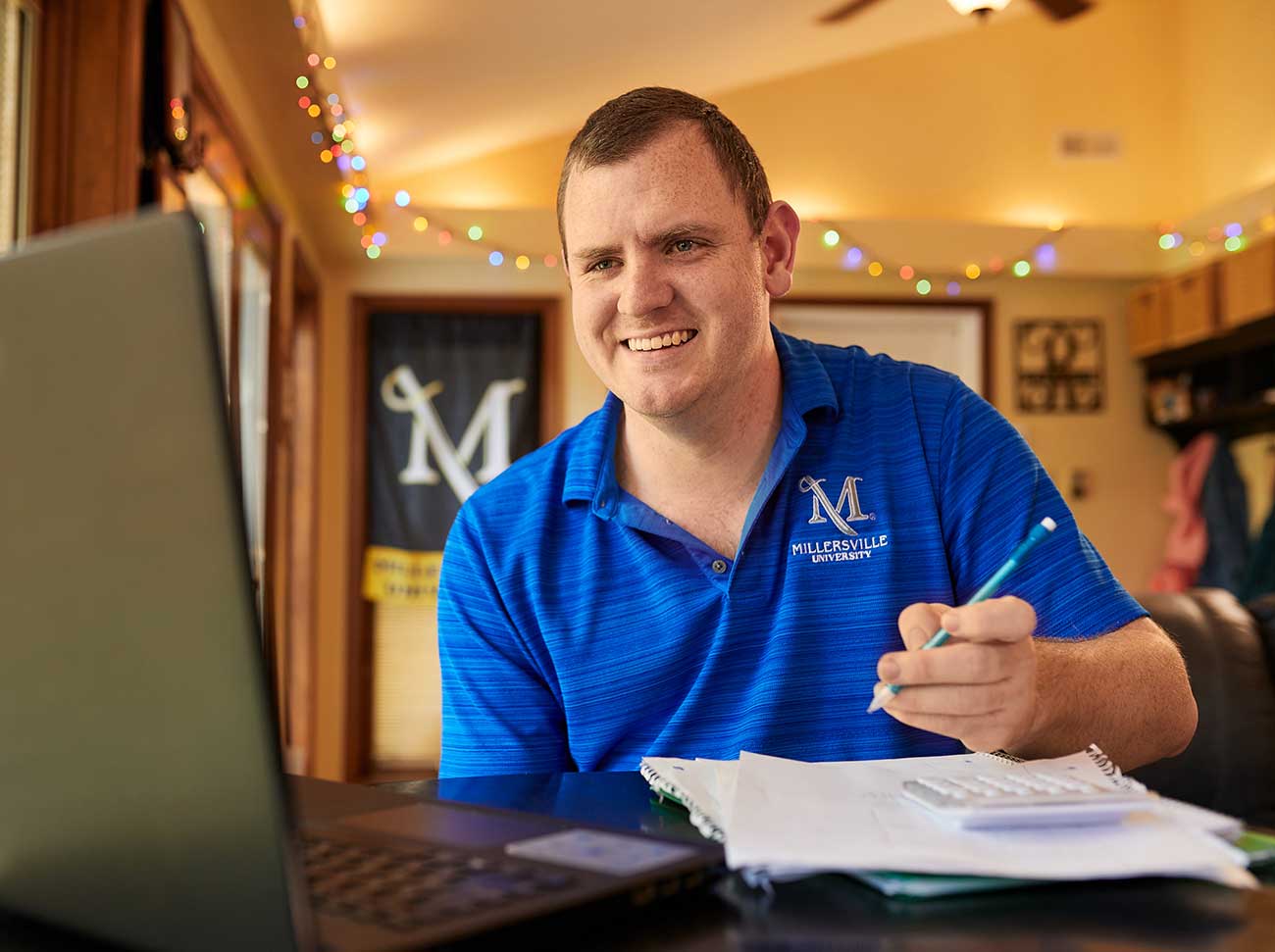
Patty Taggart, who runs the career office, has noticed how closely he concentrates on his work. “He is exceptional at that,” she said. “He’s more focused and gets more done in the time allotted than most of the students here. He’s very task-oriented.”
And he’s learned well on the job. Taggart noted that when he assembled his first stacks of handouts, they were more piles than stacks. It wasn’t natural for him to even out the long side of a stack, then the short side, tapping them again and again against a tabletop to even up the sides.
Taggart remembers asking Bechtel how she should work with Raymond on points as simple as properly stacking documents or folding a tablecloth neatly.
“Jan told me, ‘Patty, you need to hold him to the same standard as everyone else,’” Taggart remembered.
Bechtel’s direction follows the central principle of Integrated Studies: Students need and deserve to take the main thoroughfares of society, not stay in gently traveled, guardrail-protected lanes of their own.
Faculty reactions vary
C. Onek Adyanga, an associate professor of history, welcomes Integrated Studies students to his classes.
“First they come in a little shy,” he said. “That could be a function of the background that they’re coming from in the high school. … I don’t know whether during high school they were isolated from the mainstream student body.”
But he finds they adjust to his class well. “After a while, I find that they literally just meld in the student body. And they’re talkative, very assertive.”
All sorts of students come to his class, and he works to create an inclusive atmosphere. “You set a pace that everyone’s welcome. Everybody will respect everybody. There’s nothing like wrong or stupid answers. Every answer is an attempt, and that attempt might need to be revised,” he said.
Melissa Gehret, a biology instructor, has had to work a bit to adapt tests for Integrated Studies students. That adaptation has entailed some trial and error, but she’s settled on giving open-book tests. They’re a better measure of how well the students are learning to learn, she said, and they help foster organizational skills. “My goal isn’t to see what (they) can regurgitate and supply back to me. My goal is to see: ‘Are they organized enough that if they were given information, they could look it up, they could use their notes, they’d learn how to use resources?’ So that’s my goal, especially if we’re going to mainstream them in the job world,” she said.
One problem Gehret sometimes encounters is that not all Integrated Studies students have aides to help them, or they have aides who are unfamiliar with equipment used in her introductory biology class. She teaches 144 in her lecture, and she also runs two lab sections of 24 students each. That means she has very little time for one-on-one work with any student.
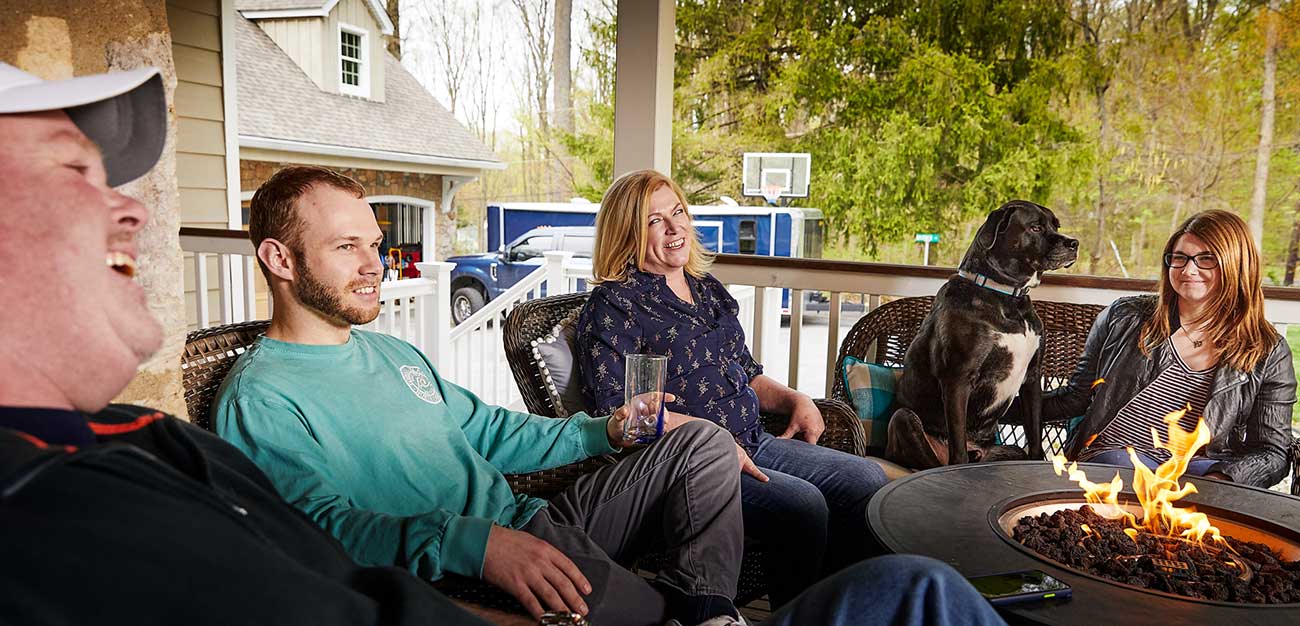
Kelsey Borror
When junior Kelsey Borror, 24, arrived at Millersville University, she wanted to be a veterinary technician. “That’s what I always wanted to do when I was younger. I never saw myself wanting to work with people because I’m not that social,” she said.
That changed when she enrolled in Kathleen Walsh’s social work class.
“I took a social (work) class, and it changed my mind on things,” she said. “I find it interesting, and I want to help people.”
Walsh “kind of persuaded me. … She was like, ‘I might persuade you to become this major.’ And she did,” Borror said.
Since then, she’s delved deeply into the topic. Spring semester, for example, she took Social Work Welfare and Law, Human Diversity, and another class on the psychology of racism. How that might turn into a career, she’s not sure. Borror finds criminal justice fascinating, so she thinks something on the fringe of criminal justice, perhaps working with kids affected by crime, might be possible.
Just the fact that she sees lots of possibilities for her future is a change in itself. Before she came to Millersville, Borror spent two years taking two classes a semester at a community college. Her mother, Lori Warner, remembers those four semesters as a struggle for everyone. “I felt like I finished another degree myself,” Warner recalled. “Millersville has been wonderful for her.”
She said her daughter is much more self-reliant at Millersville than she’s ever been. Her growing skill in navigating the world pays off directly for Warner. A key example: Her daughter now takes the train, saving Warner two round trips to enable Borror to visit home.
“I seem to be more confident with myself than I was when I got here,” Borror said. “When I got here, I didn’t really believe in myself that I could do what I can. I didn’t think I was smart enough.”
In fact, Borror is confident enough to objectively describe her disability. “It takes me longer to understand something for a subject. … It just takes me longer to process it, basically.”

In at least one respect, she’s already achieved the most important thing the Integrated Studies program strives to instill in students: She works, not as an intern, but as a paid employee. She is a server with a catering service on campus. When at home, she works as a hostess and greeter in a hotel, and before that, as a greeter in a Sam’s Club.
Pandemic effects
On March 12—the day after the NBA canceled its season—Millersville University announced it would close its campus and shift all instruction to distance learning. Borror was stressed at first because she had found online classes difficult, her mother said. But she rebounded well when classes actually resumed at the end of March.
“I can’t say enough about Jan Bechtel and what she has the students do and how she goes about motivating them,” Warner said. “She’s coming up with stuff that I don’t even know where she’s getting it from. … like a social hour and Jeopardy game online that the kids can do through Zoom.”
Eric Raymond has at least this consolation prize: Days before the coronavirus closed campus, he was able to perform on stage at the school as one of “Twelve Angry Jurors.” He’s loved theater for years. Listening to songs from musicals such as “Hamilton” to “The Sound of Music” is one of his favorite pastimes.
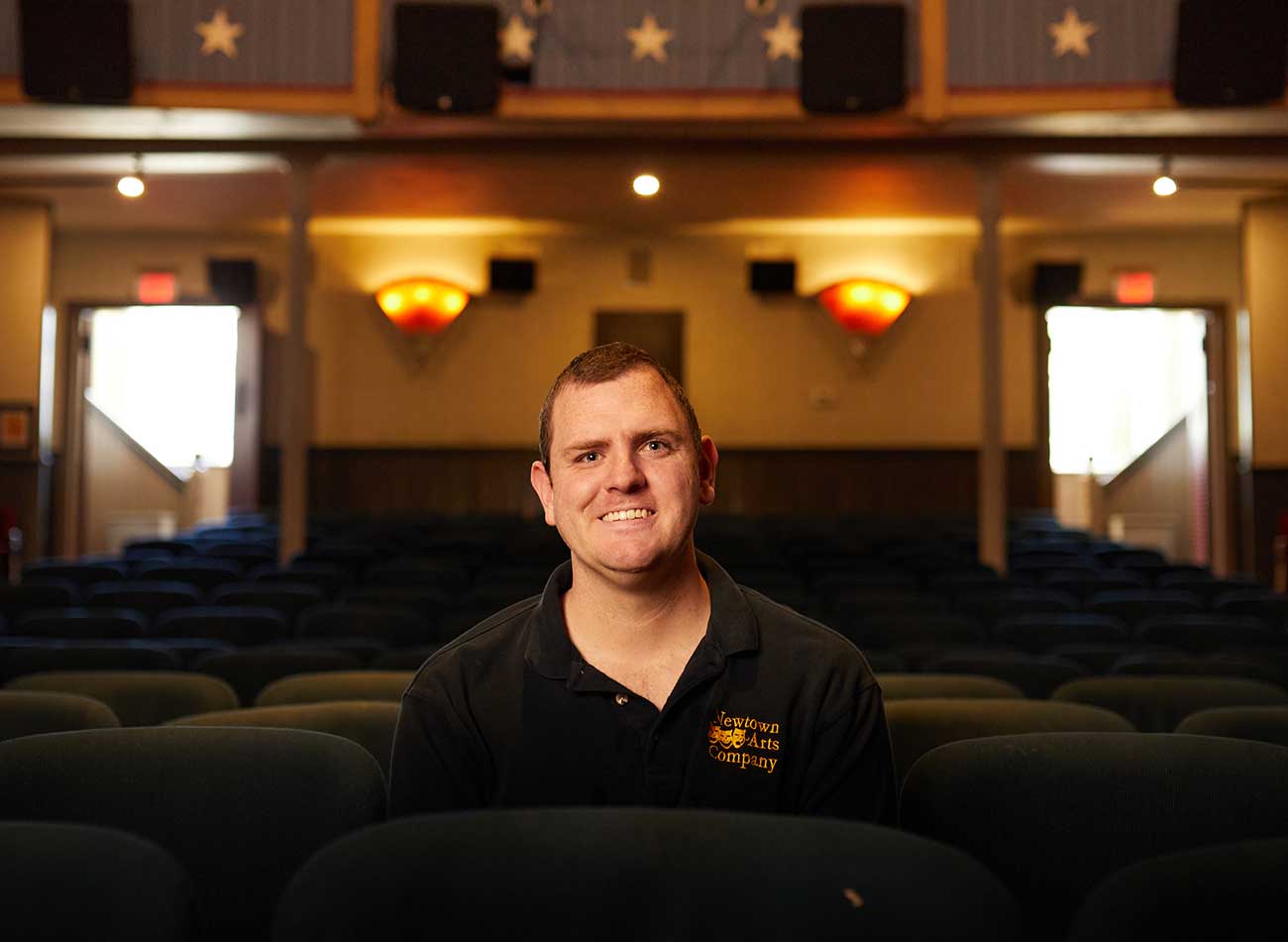
As for the school work, he was comfortable with it.
“I took online classes before, so I knew how it goes,” he said, adding that the academic coaches with Integrated Studies help a lot. In fact, he thinks he probably did better with schoolwork while stuck at home.
“I think it’s easier that I’m home; that way, I can get more accomplished. At school, I feel like I’m not staying as focused,” he said. At the same time, he admitted his disappointment over missing the enjoyable work and activities on campus.
Bonal said she got the help she needed from coaches with Integrated Studies, but she still finds it difficult working from her home in Exton, Pennsylvania. “It’s very hard, but we are learning new things every day,” she wrote in an email in April, while classes continued.
“I thought it was going to be easy, because we’re home.” She enjoyed campus very much, and she missed it. The hardest thing about taking classes from home, she said, is “you can’t talk to the professor and communicate with other students in class.”
The change might have been most jarring for Daniel Castellanos. The Press Room restaurant, where Castellanos took such pride in creating salads, closed in mid-March. Two months later, it hadn’t reopened, and he’d found no other work.
Unbridled ambitions
Still, there’s no sign that a few weeks off work have tamped down Castellanos’ ambition to mix theater, dining, and social justice.
When he was 17, he landed a part in “Curtains,” a comedy-mystery musical, at J.P. McCaskey High School in Lancaster. He’s loved theater ever since. What he’s learning about business and restaurants fits smoothly into his plan. “Probably in the future, I’m planning on doing a dinner theater business,” he said.
At Millersville, he took a class on public speaking, and that plays into a new aspect he already incorporates into his life’s work: advocating for others with intellectual disabilities. In another class, he read Saul Alinsky’s book, ”Rules for Radicals.” Alinsky argues that communities of people who lack conventional political power can organize and gain it. Since then, Castellanos has spoken at professional conferences and testified before Congress.
“For me, being a radical advocate means doing something that you feel is right,” he said. “If you look at what Martin Luther King Jr. did, he stood up for what he thought was right for his people. Same thing with Gandhi, who stood up for his people, who wanted the same rights and to have their freedom. I want to stand up and have the same education for students with disability, and to have the right to be independent, and to give the same opportunity as any other regular people.”
